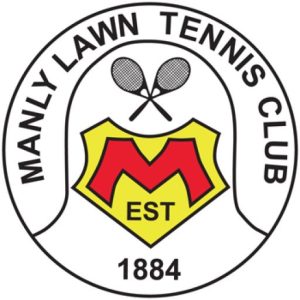TENNIS / July 1990
By Stan Smith with Cindy Hahn
I’ve known a lot of parents in my life. As a junior player, I knew them as friends’ moms and dads. As Director of Coaching for the USTA, I work with fathers and mothers of our nation’s top juniors. And, as the Father of two racquet-wielding children, I am a tennis parent myself.
Jim Loehr, the sports psychologist who oversees the USTA’s sports science program, says “When I work with kids, the relationship with their parents and how it affects their tennis is always my number one concern”
Some parents do a wonderful job. Others make me wish there were remedial parent-training courses. But all struggle with the pressures junior tennis places on tennis parents:
Has our son outgrown his coach? Can we afford the airfare to the nationals? Is our daughter burning out?
There’s no course to teach you how to handle this enormous financial and emotional investment, nor is there any tried-and-true answer for even the most common questions. But I can share with you some guidelines that may help, based on the research of sports psychologists, USTA studies and my own experience.
First, to get a sense of how you rate as a tennis parent, take the quiz below, which is based on one in Loehr’s book, The Parent / Players Tennis Training Program.
Use the scale below for your answers.
5 = Always | 4 = Almost always | 3 = Sometimes | 2 = Almost never | 1 = Never
1) Do you coach your child?_______
2) Do you watch all your child’s matches?_______
3) Do you look nervous on the sidelines?_______
4) Do you treat your child differently when he/she wins?_______
5) Do you ignore your child’s bad behavior on the court?_______
6) Do you tell your child he’s being unrealistic when he talks about a pro career?_______
7) Do you believe your family’s standard of living has suffered because of the expense of your child’s tennis?_______
8) Do you think your child should give up other sports to concentrate on tennis?_______
Total up your score and refer to the chart below:
8-16 = Good Job, as a tennis parent, you are a pro
17-32 = Slight problem, work on your strategy and consistency
33-40 = Problem parent, re-learn the basics fast.
Tips to Improve your Performance
1) Be a Parent, Not a coach.
In the beginning, it’s great to be your child’s “coach” to introduce him to tennis. He will be more interested in tennis if the initial exposure comes from you because kids naturally want to do what their parents do.
However, eventually, the parent needs to hand the coaching duties to someone else. Most parents don’t have the technical knowledge to instruct their children. But more importantly, the roles of coach and parent are so conflictive that it is nearly impossible for one person to play both.
A coach’s job is to build strong tennis players, the coach must criticize and compliment based on performance. The parent’s job is to build a strong person; they must provide unconditional love that instills self-esteem in a child. For one person to tackle both of these jobs is a formidable task, and the results are often disastrous.
2) Watch no more than 75 % of your child’s matches.
Your child needs to learn that he is the only person who can control the events on the court. It will also give him the confidence to know he can compete without his parents watching.
I also feel parents should watch 25-50 % of their child’s practices. Practice is the coach’s domain, and he needs your absence to develop a relationship with your child. Your absence will also promote your child’s on-court independence.
Parents that watch too many practices are sending a subliminal message to their children that tennis is so important, that they have to be at everything about it. It can also show a lack of trust that the parents may have in the coach’s ability to get the job done.
3) Always look positive during a match
Your child inevitably will look over at you, and your body language can make or break his confidence. Always maintain a calm, confident air, even in the third set tiebreak. If your child sees you with your head in your hands or pacing nervously, his feeling of pressure will only become more intense.
I know it’s difficult because all parents are nervous about their children. Charting your child’s match can help (we recommend momentum charting). This will give the parent something to do with their hands and something constructive to take their mind off the on-court drama. The charted results may also be useful to the coach.
4) Keep an even keel.
You may feel elated by your child’s win or deflated by their loss, but don’t show either emotion too much. This will help them realize that losing isn’t the end of the world and that winning isn’t everything.
Always say something positive (that’s easy when he wins), but even if they lose, avoid the temptation of becoming the coach. Let the coach do that job at the next practice session. Something like “Bad Luck, you competed well, you can get them next time” would be a good thing to say after a loss.
5) Reprimand your child for on-court misbehavior.
If cheating, racquet throwing, or abusive language becomes a habit, take some dramatic action. Pull the child off the court and reprimand him. Make it understood that under no circumstances is that acceptable behavior. If you ignore this misbehavior you are condoning it – and that is failing your responsibility as a parent.
6) Let your child dream.
Never take away your child’s dream, as unrealistic as it might be. Dreams are the fuel that keeps young people striving, learning, and exploring.
If your child says he wants to be a pro someday, and it’s obvious that he doesn’t have what it takes, don’t say “You’re just not athletic enough”, instead say something like “That would be great, But first you need to work hard at getting a national ranking. Andre Agassi, John McEnroe, and other pro players all competed on the national level before making it to the pros”
By helping your child realize what he needs to achieve to reach the goal, gradually he will see pro tennis is not the right track. He will begin to revisit the dream finding alternatives that can be just as fulfilling and more realistic.
7) Explore financial options.
Loehr recently talked to a woman who took out a second mortgage on her house to pay \for her child’s tennis. That is clearly too much of a financial sacrifice. When a family’s standard of living is eroded because of tennis it places enormous pressure on the child, even if the subject is never spoken about. The child is likely to feel responsible to win because of the major sacrifices the family has made for his tennis.
If your child is very talented, there are two ways to support their tennis. Families, friends, or local businesses are often willing to sponsor a talented junior, but make sure out check out any possible NCAA rules before accepting money. The USTA is another avenue of possible financial assistance. Check with your USTA sectional office about any assistance programs for talented juniors.
8) Encourage your child to play other sports.
Usually, when junior players get older (around 14 years old) they will have to forgo other sports if they want to reach their full potential in tennis. Until then, they should play all sports they enjoy.
In 1987, when the USTA analyzed other countries’ tennis programs, it found that nearly all their best players played other sports until the age of 12 or 13, and many until 14 or 15. A child will only develop half to three-quarters of their athletic potential by playing only tennis. Also, distractions from tennis help keep burnout at bay.
My 11-year-old son, Ramsey, has played baseball (he is a pitcher) for the last three years. This year, my wife and I thought maybe he shouldn’t play so that he could concentrate on tennis. But we decided that he should continue baseball. The benefits of playing a team sport, combined with the eye-hand coordination baseball promotes, and the pressures of being a pitcher ultimately will help his tennis.








